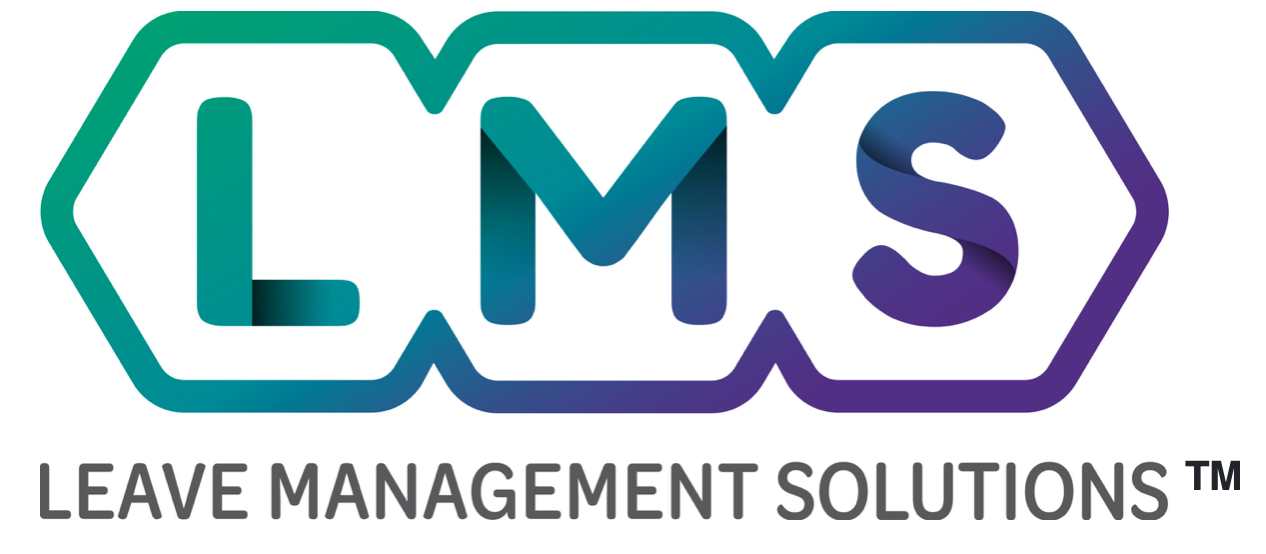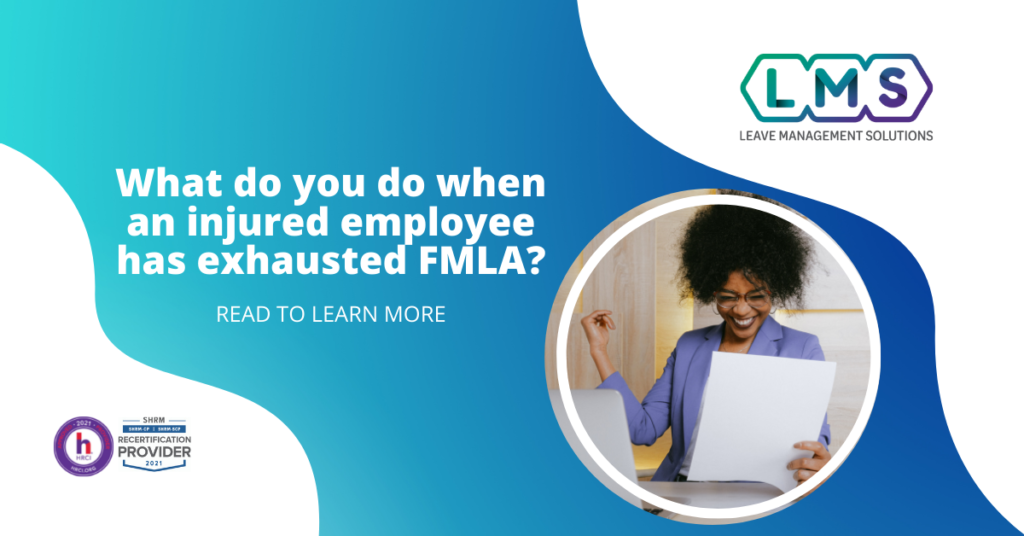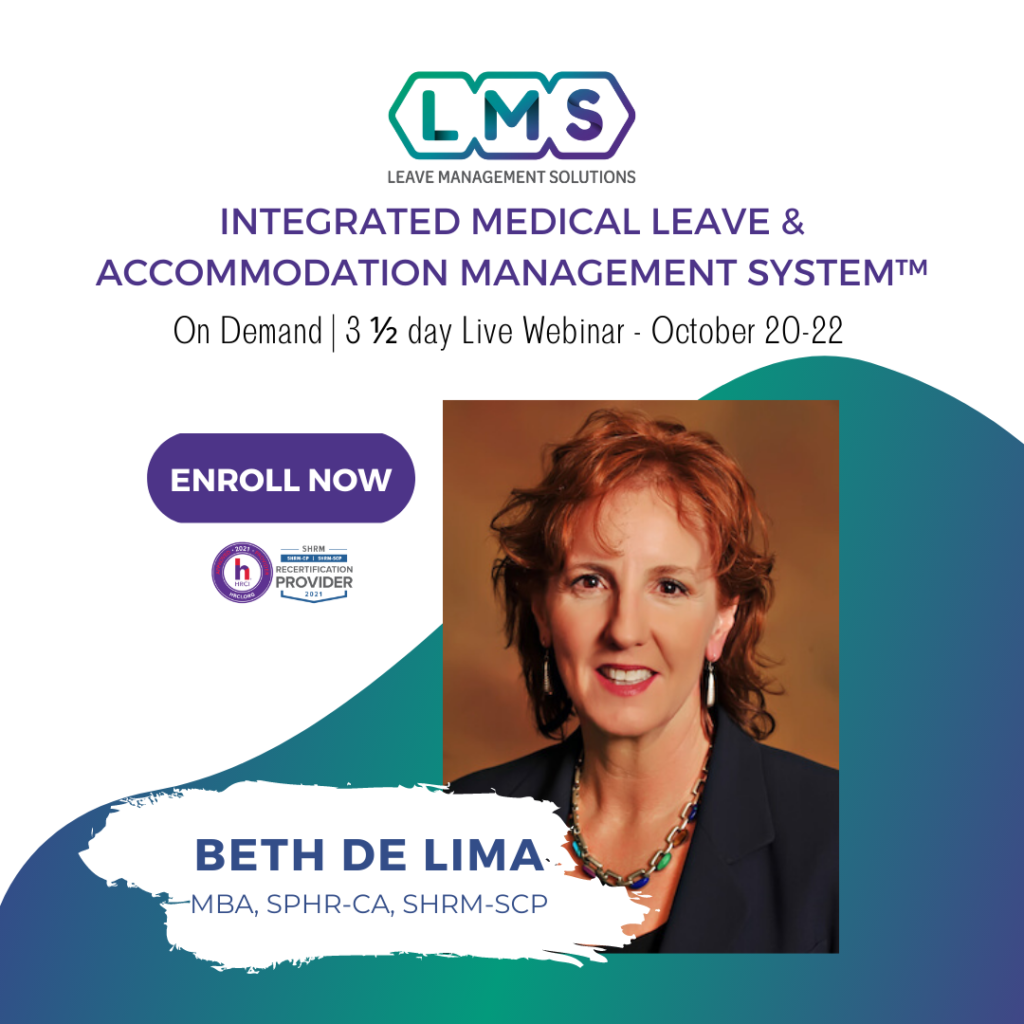Premium Content
Get Instant Access!
Enter your information to the right to unlock this premium content and get instant access to important answers to your HR questions!
Question:
Maggie has an employee who has a need for intermittent leave due to some injuries they received in a car accident. Maggie’s employee will be exhausting FMLA approximately 1 month before their need for this leave will end. What are the next steps that Maggie should take?
Answer:
When an employee continues to indicate the need for leave at the end of FMLA, as a result of a Serious Health Condition, this may also qualify as a disability under ADA. When FMLA ends ADA begins, all the time, everytime, unless it is determined the employee is not a Qualified Individual with Disability. Not all serious health conditions will qualify and continued leave as an accommodation may be an undue hardship. An employee is determined to be a QID if they are able to perform the essential functions of their job with the accommodation. If an employee continues to extend their leave, under ADA, and is unable to provide a “valid” return to work date, the QID statards does not apply. Maggie should send a conditionally ADA designation notice, pending a Good Faith Interactive Meeting, two weeks prior to the exhaustion of FMLA. During the Good Faith Interactive meeting Maggie will review the medical evaluation regarding how the disability impacts the ability of the employee to perform their essential job functions, so an appropriate accommodation can be identified. Remember, if the employee cannot be accommodated in their regular job position, review all other open positions the employee is qualified to perform and evaluate your ability to accommodate in those positions. An Undue Hardship Analysis should be fully and objectively documented in the event it is determined the accommodation request is unreasonable and an Undue Hardship to provide. Once the employee has been notified of the ADA Denial, move forward with the company’s standard operating procedure for a change in the employment relationship, appropriately applying all other relevant policies that may apply, such as STD, LTD or other personal or medical leave policies the company offers that have not been exhausted.
Do you need help navigating the ADA Good Faith Interactive Process, Accommodation Research and Undue Hardship analysis? Are you unsure how to objectively determine and document if an employee is a Qualified Individual with Disability? Join us for a Live Webinar or check out the online ADA Accommodation Blueprint, (see the modules to purchase individually or as a package) CA specific or USA versions!
The American with Disabilities Act is a very complex regulation. Failure to comply with both state and federal regulations when implementing the ADA can result in confusion and costly litigation as well as a delay in the end of leave and healthcare benefits.
What are the factors for evaluating potential reasonable accommodations and how do you verify an employee is a Qualified Individual with a Disability, and how does the employee maintain the QID standing? Understand the process for confirming disability, identifying accommodations, and confirming the employee is a Qualified Individual with a Disability. There is a difference between the denial of an ADA Accommodation because the employee who is not confirmed to be a Qualified Individual with a Disability versus an employee who is not able to have their accommodation occur because it’s an Undue Hardship.
Overcome the challenges in designating FMLA (CFRA) leaves and ADA (FEHA) accommodations and build a firm foundation of your Integrated Leave and Accommodations Management System™.
Learn from an HR expert, Beth De Lima, MBA, SPHR-CA, SHRM-SCP, who has been working with the ADA for 30 years, providing Subject Matter Expert assistance in understanding the complex medical leave experience. Ms. De Lima has been providing Expert Testimony on HR Industry Standards of Care regarding the ADA and FMLA for over 20 years at a state and national level, By HR for HR!


